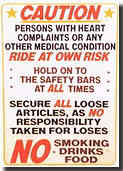Monday, July 01, 2013
Battle of Gettysburg Day One
The Battle of Gettysburg was fought July 1–3, 1863, in and around the town of Gettysburg, Pennsylvania. From Wikipedia:
The first-day battle proceeded in three phases as combatants continued to arrive at the battlefield. In the morning, two brigades of Confederate Maj. Gen. Henry Heth's division (of Lt. Gen. A.P. Hill's Third Corps) were delayed by dismounted Union cavalrymen under Brig. Gen. John Buford. As infantry reinforcements arrived under Maj. Gen. John F. Reynolds of the Union I Corps, the Confederate assaults down the Chambersburg Pike were repulsed, although Gen. Reynolds was killed. By early afternoon, the Union XI Corps had arrived, and the Union position was in a semicircle from west to north of the town. The Confederate Second Corps under Lt. Gen. Richard S. Ewell began a massive assault from the north, with Maj. Gen. Robert E. Rodes's division attacking from Oak Hill and Maj. Gen. Jubal A. Early's division attacking across the open fields north of town. The Union lines generally held under extremely heavy pressure, although the salient at Barlow's Knoll was overrun.
The third phase of the battle came as Rodes renewed his assault from the north and Heth returned with his entire division from the west, accompanied by the division of Maj. Gen. W. Dorsey Pender. Heavy fighting in Herbst's Woods (near the Lutheran Theological Seminary) and on Oak Ridge finally caused the Union line to collapse. Some of the Federals conducted a fighting withdrawal through the town, suffering heavy casualties and losing many prisoners; others simply retreated. They took up good defensive positions on Cemetery Hill and waited for additional attacks. Despite discretionary orders from Robert E. Lee to take the heights "if practicable," Richard Ewell chose not to attack. Historians have debated ever since how the battle might have ended differently if he had found it practicable to do so.With the Union Army, under new commander George Meade, strung out on roads south of Gettysburg, Lee had some tremendous potential tactical advantages. But Lee did not have Jeb Stuart's superb calvalry, his eyes & ears, which he had permitted to ride off independently, circling around the Union Army, in a movement more grandstanding than anything else. Many historians believe this resulted in Lee choosing the wrong place & conditions to do battle. I agree. In Lee's defense, he believed under the circumstances he had to engage the enemy where & when he found them. He was in hostile territory, not in Virginia close to his supplies. He could not take a up a defensive position & wait indefinitely for the Union forces to engage him.
Labels: Civil War Sesquicentennia














